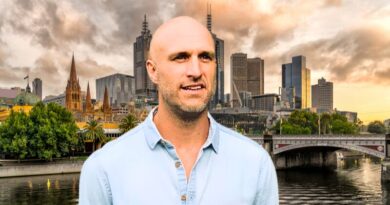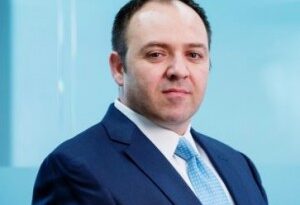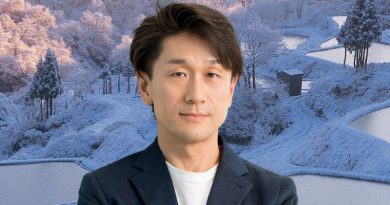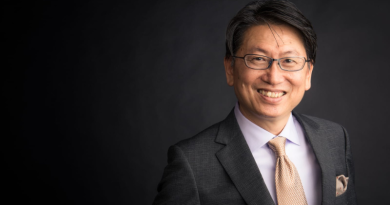Ronnie Wu: “We look for managers who are entrepreneurial”
Penjing Asset Management’s CIO Ronnie Wu talks with Hedge Funds Club’s Stefan Nilsson about Hong Kong’s role in the hedge fund industry, his focus on Asian hedge funds, what he looks for in a new fund manager, the evolution of Penjing’s business model, the importance of due diligence and much more.
Ronnie Wu is the CIO and Co-Founder of Penjing Asset Management in Hong Kong. Penjing is a gatekeeper and fund of hedge funds manager focused on Asian hedge funds since 2005. As CIO, Ronnie oversees one of Asia’s most experienced dedicated hedge fund research teams. He is responsible for firm-wide business development as well as investment oversight and risk management.
You have long been one of the leaders in Hong Kong’s hedge fund industry. In recent years, Hong Kong has faced a number of challenges. How do you think Hong Kong will bounce back? What will Hong Kong’s role in the finance world be in the near future?
Hong Kong remains the international gateway for China, increasingly becoming home for Chinese family offices to access international investment opportunities. The interconnectedness of the markets has been further strengthened over the last seven years with the introduction of Stock Connect and Bond Connect. For international capital wanting access to China and the Asian markets, Hong Kong continues to be a destination of choice given its well-developed legal and financial infrastructure.
At Penjing, which you co-founded in 2005 after some years at another FoF business, you focus on Asian hedge funds. Why did you decide to focus only on Asian hedge funds?
Hedge fund investing was a nascent sector back in the 90s when I was doing global fund of funds at UBS. The strong underlying growth of Asian economies and capital markets provided an attractive environment to build a fund of funds business with the growing universe of Asian hedge funds. Proximity to market: being based in Hong Kong we were centrally located for manager research locally and around the region. We believed there would be an information advantage for us to focus on Asia, which in turn would add value for global investors.
How has your fund of hedge fund business and its services evolved?
We started our business managing funds of hedge funds, focusing on bottom-up manager research. We have also seeded and accelerated emerging hedge fund managers over the years. More recently we have really become a hedge fund solution provider to both institutional clients, family offices wanting access to Asia based hedge funds through these offerings: fund of fund products, segregated accounts and advisory mandates, hedge fund acceleration fund, access to a curated stable of underlying managers where we have discounted capacity.
A few months ago, Penjing announced a strategic partnership with Modus Asset Management to launch an acceleration program to support emerging hedge fund managers based in Asia. Tell us about this new initiative!
Penjing has a track record of seeding and accelerating emerging hedge fund managers dating back to 2010. This partnership with a local family office formalises our efforts, in that a dedicated fund was raised to accelerate managers. To date, this is around a $200 million program to be invested in a handful of managers. The program will provide locked up capital to managers, giving them resources to further invest in their businesses. In return, investors in the fund will be able to participate in the success of such managers’ growth via revenue-sharing arrangements.
What are you looking for in a new Asian hedge fund? Are there specific things that those that successfully get allocations from you have in common?
Apart from the typical bottom-up manager selection criterion that we apply to all of our investments, we look for managers who are entrepreneurial, have a strong vision for their business and have proper alignment of interest with investors.
How has the way you conduct fund due diligence changed over the years?
The fundamentals of bottom-up manager selection have not changed. The efficiency of the process has improved however as technology now allows for online meetings, enhanced systems for tracking our manager meeting record and fund exposure/performance to better inform us to get to our investment decisions. As our database grows to thousands of records over the years, reference checks and cross-referencing with different industry participants play a bigger role now than before.
Has the Covid-related travel and meeting restrictions in the last couple of years been a challenge for you when it comes to fund sourcing and monitoring?
We have continued to invest in funds regionally through conducting virtual ODD/IDD. Fund sourcing: a combination of external research for manager scouting and macroeconomic country/sector analysis, including an extensive network of service providers, prime brokers and industry contacts within the region, publicly available databases, periodicals and conferences. Monitoring: the level of portfolio transparency we get from managers allows us to conduct detailed meetings virtually.
You spent time working for a couple of global investment banks before you made the move into stand-alone asset management. For people who want to join the hedge fund or wider alternative investment industry, do you think it is a good grounding to kick off one’s career in investment banks before joining a fund manager or setting up one’s own fund?
For younger people who are looking to join the hedge fund industry, it makes a lot of sense to start with larger organisations to gain a deeper understanding of how the financial market functions. The hurdle for setting up one’s own business has gone up over the years, so having certain experience and capital would increase the chance of success in my view.









